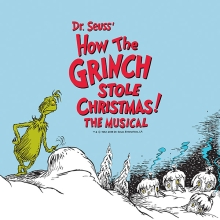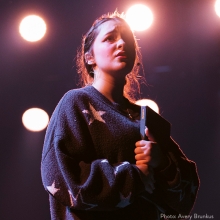Show History
History
Inspiration
Frank Wildhorn and Gregory Boyd had just put together the national tour of Jekyll & Hyde, and The Alley Theatre, which had premiered the show prior to its Broadway run, was preparing to celebrate its 50th Anniversary. The team wanted to create a new piece to commemorate the event; Jack Murphy signed on to collaborate, and The Civil War was created.
With this new project, the team wanted to create a nontraditional 'thematic' musical event, using a distinctively American voice with an emphasis on traditional storytelling. The Civil War is a musical event that borrows techniques from rock music, concert performance, oratorios and song cycles. The writers were inspired by the words of Walt Whitman, Frederick Douglass and Abraham Lincoln. They were also inspired by the life (as documented through letters, photographs and journals) of Hannah Ropes, Mary Chestnut, Second Virginia Infantryman Henry Kyd Douglas and Henry H. Pearson of the Sixth New Hampshire company.
Productions
Prior to any formal stage production, The Civil War received a star-studded concept album in 1995, featuring Hootie and the Blowfish, Blues Traveler, Travis Tritt, Betty Buckley and many others.
The Civil War premiered on Broadway on April 22, 1999, at the St. James Theatre. It closed on June 13, 1999, after 61 performances. Following its closing, the musical toured the United States, beginning in January of 2000 in Ohio. The Civil War was also one of the musicals produced at the newly-renovated Ford's Theatre in Washington, D.C. The production opened on March 27, 2009, and closed on May 24, 2009. Directed by Jeff Calhoun, the production was mounted as a reconceived staged concert.
Trivia
- In 2006, a new version of the musical opened at the Majestic Theatre in Gettysburg, Pennsylvania. Renamed as For the Glory: The Civil War Musical in Gettysburg, it featured a brand new story structure and two new musical numbers.
-
The Battle of Gettysburg claimed casualties of almost 51,000 lives, more than twenty times the population of the town of Gettysburg itself. The war would continue for two more years.




